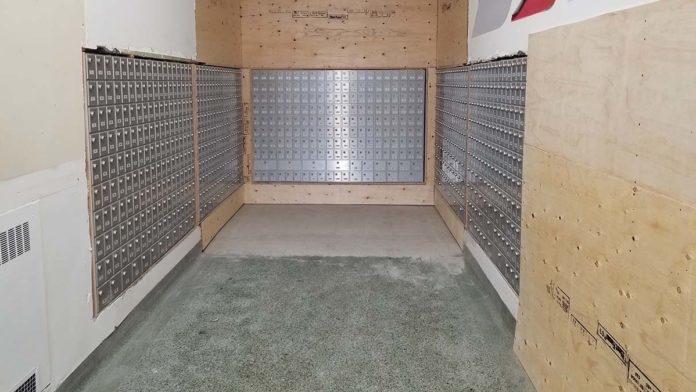by Petra Wall
Miriam is enjoying the sunshine on her side deck, shelling a bucket full of fresh peas just harvested from her garden behind the house. Her porch is adorned with a web of grapes that are ultimately turned into a fine wine, a taste of which is shared with the writer after the interview. Flowers decorate her home which is nestled among the trees, not far from the farm of her son Ted Smith.
Miriam’s working life was launched as a teen, in her dad’s grocery store, “Steve’s.” Galt Business College initiated her teaching career which later contributed to her role as radio operator for the Ministry of Natural Resources (MNR). The MNR had her directing traffic for various related departments: fire, forest management, fish and wildlife in separate roles over the years.
Maternal great grandparents, the Chestermans, married in 1880 in London, England, arriving in Canada three years later. “Great-grandfather liked plants and became a florist. His passion later was shared by Miriam’s son Ted whose fascination with plant life is clear. Great-grandfather had eight children, one of whom, Ada, married Edmund St. Clair and became my grandmother. They had two boys and two girls. Muriel, their oldest, became my mother. I do not remember much about great-grandfather. I was four when I walked with him, holding his hand. He was nearly blind, and he tripped over a tricycle; I could have warned him about it.”
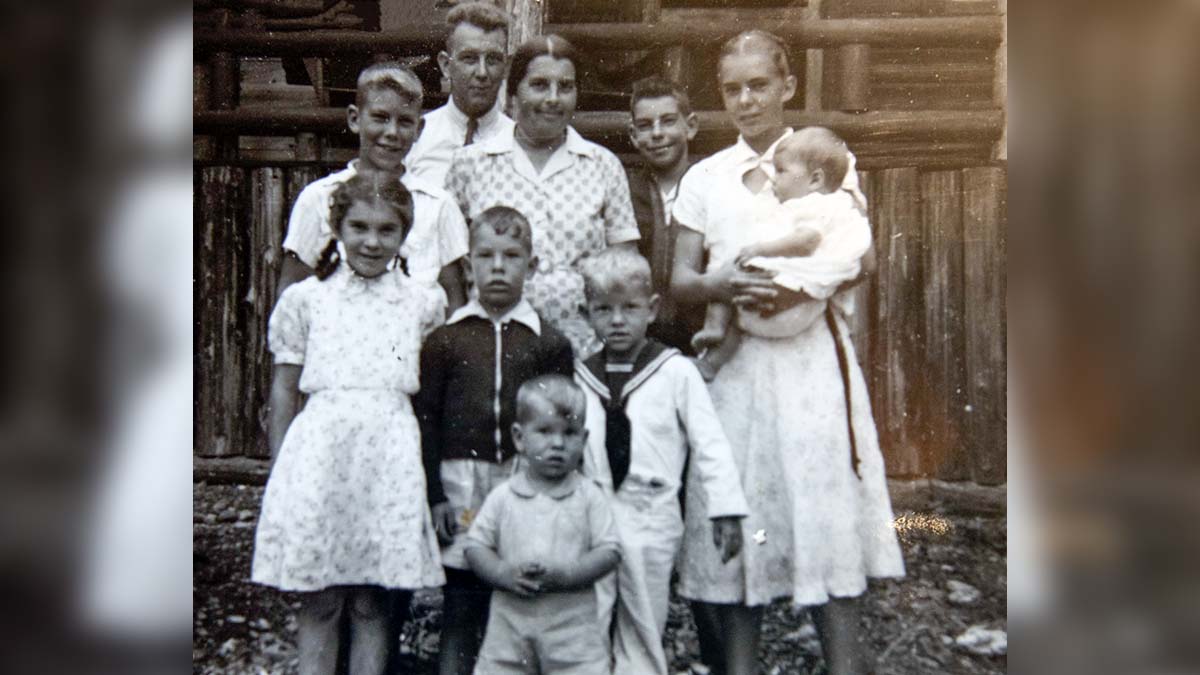
“My father, Stephen Fletcher, had immigrated to Canada with his parents, Arthur and Mary, from Yorkshire, England, at the age of four. We also had eight children in our family, Esther, Paul, Philip, me, Peter, Andrew, John and Eunice. Esther, trained as a schoolteacher, married Don Gordon of Providence Bay and lived in Scarborough. They have four girls. Don, a carpenter, worked for the local Board of Education. Paul married Dorothy Rowe of Gore Bay. They had four children, three boys and a girl. He was a produce manager at Dominion Stores, and later became a preacher in Simcoe and Elmira. He remarried after Dorothy died about two years ago. Phil married Sheila Chalk, an X-ray technician. They have two boys and two girls and lived in Galt where Phil was a contractor. One son, Drew, is also a contractor.”
“Peter, now passed, was a travelling navy man. He had four children, three with his first wife, Sharon, and a boy with second wife Nan. Jane came along later in life. Peter and Jane retired in Gore Bay. Andy married a Jane also, and they have two boys and a girl. He was a conservation officer in Midland and lives in nearby Port McNichol. John was another navy man. He married three times. He has no children. He and Sylvia Kemp live on the Poplar Road at the Kemp farm. Eunice married Norm Courvoisier and they live in North Bay. They have three boys. Eunice was a secretary for the local Board of Education. Norm worked in maintenance for the same employer. Eunice and Norm fostered seven children after their own family was grown.”
“I remember my first Christmas at age four. Peter and I were given a tricycle to share. I chose mornings to ride it,” Miriam offers, smiling, “I knew he would be napping in the afternoon. Christmas was a special time. When I was a bit older, I decided to find the family Christmas tree. I dragged that perfect tree home only to find out cedar trees were not popular and to make it worse, everyone laughed. We went through the war years in burlap outfits. Both Esther’s and my clothing were supplemented with flour and sugar bags, but other families did the same. After the war, unused food coupons were ideal for playing store.”
“I was a very rebellious child. When Phil was 10 and I was eight, we ran away from home. As middle children, we felt unappreciated for the extra work we did. One day, Esther, told him to ‘get lost’ and that was the last straw. Phil convinced me to escape with him. It would be a great adventure and teach our family a lesson. We both got on his bike. A pillow was tied to the crossbar for me, and we rode all the way from Galt to Niagara Falls. On the way, we tried sleeping in a culvert under the Queen Elizabeth Way Highway but there were too many mosquitos, to say nothing about the heavy traffic. We looked for an alternative and headed towards some lights at a nearby farmhouse. When they opened the door, we realized they did not understand much English.”
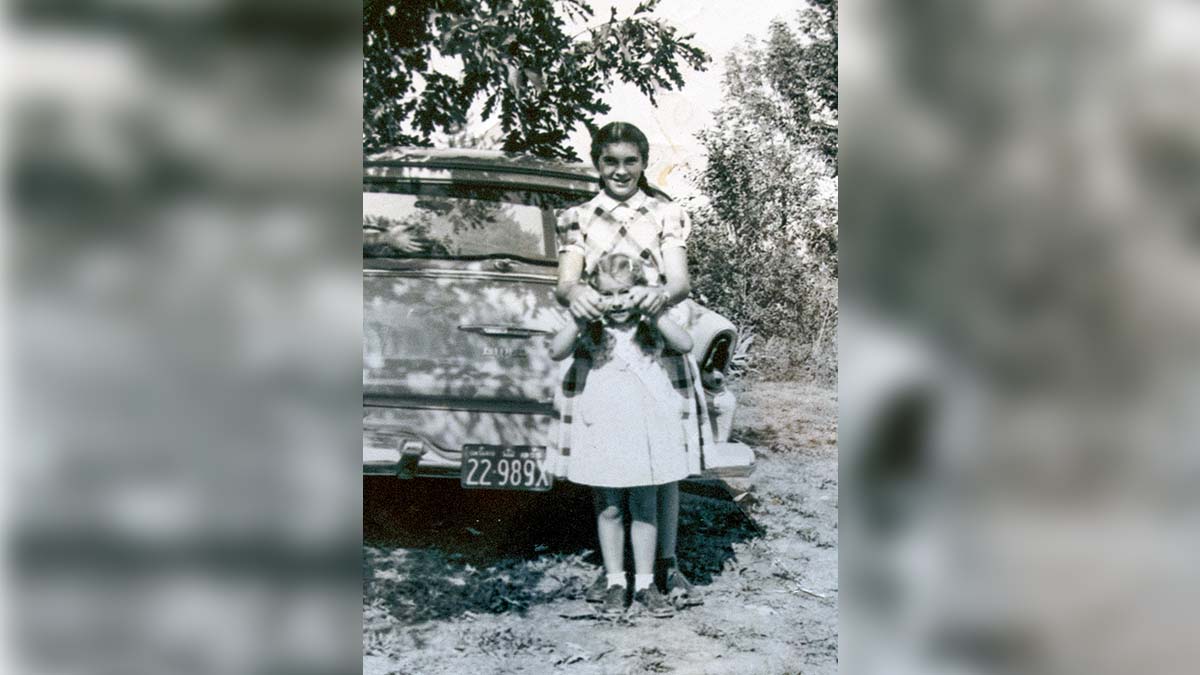
“Nevertheless, they let us in, fed us and we slept on the couch. In the morning they served us breakfast. We thanked them and continued our journey to Niagara Falls where we tried to cross the border to wind up in Detroit where we had an aunt. We bought a permit to cross to the USA and the Canadian side let us through, but the American border guards returned us to Canada. We were escorted to a Niagara Falls’ cell and our parents were contacted. They were simply happy that we were safe, at first.”
“Phil, being older, was likely punished more significantly than I was. Phil never got his permit money back either. On the plus side, we were more appreciated after that escape, especially since our story made the Galt Reporter. ‘Kids missing two days’ featured our school photos and explained in great detail how our escape had materialized.”
The one-room Little Corner’s School, on Highway No. 8, just outside Galt, was where Miriam got her early education. “My birthday on March 20, 1941 allowed me to start school a year early and finish Grade 1. I was nervous in Grade 3, when I had to stand up in front of the class and tell a story. I talked about the S.S. Hochelaga, a big ship launched out of Collingwood. That launch created a huge wave that broke the coal retaining wall. It was an interesting story, but I was so worried about being on stage, I accidentally wet myself.”
“School was not my favourite pastime. Homework was not fun, but baseball was. One time in the winter, a few of us broke into the school and turned off the heat source. When school was to start, the building was much too cold for lessons. We got the day off. Another school trick had a few of us eating wild leeks in the woods at recess. Our breath was so garlicy that the teacher would send us home. Another time, some of us were reported for throwing snowballs at cars. I was the first girl to be punished for this folly and got the strap. I apologized and took home a remorseful letter from the teacher for my parents. My mother read the letter and with reference to the strap, she responded in writing, ‘put more elbow grease into it next time’.”
High school in Galt proved to be even more intimidating. “My brother Phil, a two-year veteran, accompanied me to the school to show me around. Just the sheer number of students, 1,000, was scary. I did like being part of the Cadets. We wore a uniform, were outside and could skip class. On Remembrance Day we marched from the high school to the arena, about two miles. Grade 10 was challenging and I failed the first time I took it.”
“In 1957 part of our family moved to Manitoulin where dad would be working with Harry Croft in Gore Bay. Esther, Paul and Phil were on their own. I was the oldest to move to Manitoulin where the curriculum was so different. No home economics was available, and I would need Latin which meant I would have to repeat Grade 9. I decided to quit school. Dad had bought a grocery store from Bud Thorburn. He called it ‘Steve’s’ and I started to work there. Hugh McLaughlin’s office is there now. For the next three years, I did all jobs, enjoyed drinking pop and eating lots of candy. Our parents also had a 30-year lease for the Janet Head lighthouse in Gore Bay. They lived there and we spent cottage time there when we could.”
“By 1961, I realized that I needed a new career, so I went back to Galt to their Business College. I lived with my grandmother, Ada St. Clair. During the summer, I picked peaches in Simcoe and boarded with brother Paul. I saved money to return to college in the fall. After graduation in 1962, I got administrative work with Preston Heat Treating Corporation, where they used heat to harden steel. This was the time I went off the rails and ‘sowed some wild oats,’ so to speak. An unexpected pregnancy changed my plans. I moved to Parry Sound and gave birth to a baby boy. It was a difficult decision, but I decided to give him to a family who would be able to give him a better head-start.”
“My next stop was Orillia where I taught business college from 1963 to 1969. I met Ross Smith again and we got married. We had three children, Edmund (Ted), Glenda and Loretta (Lori). In 1969, the college closed, and we moved to Manitoulin where I worked in accounts payable for the Board of Education. My parents still lived there. In 1972, Ross and I separated, and I moved to Gogama to be a radio operator for the MNR. I worked for all the services tying into this ministry. During the fire season, I was the radio operator.”
“I bought a property in Gogama and started to build a house. The outside walls, roof, doors, and windows went up. I had no insurance. At the end of August, Ted, Glenda, Lori, and I headed to the Canadian National Exhibition, the ‘CNE,’ in Toronto. We stopped on Manitoulin to pick up my niece and catch the ferry. It was after midnight, and we were parked at the ferry dock awaiting the arrival of my niece. The kids were sleeping in the back of the van. My brother-in-law came up to my window and asked me to open it.”
“’Your house has burned down,’ he shared. My boss in Gogama had contacted him. We found out later that arson had been involved.
We had nothing but the clothes on our backs. We sold the lot with the burned house, and I bought a tiny house in Gogama.”
“We added to it over time. A firefighter I knew, along with his crew, built the foundation of the addition. A retired carpenter showed me how to put up studs, rafters and shingles. Many of my work mates from the MNR showed up to help. A Junior Ranger firefighter who taught electricity in Toronto taught me how to do the wiring. Soon, we had a good place to live. During my years in Gogama, I was also a volunteer ambulance attendant. During one vacation, we visited my brother in Inuvik. We flew in total darkness to the Beaufort Sea with the RCMP. There was just a sliver of the sun on the horizon.”
“In 1980, I bid on a radio-operator job in Timmins, representing all northern districts. The Gogama job had been restricted to one district. This job included all the major centers in the northern district. I helped my supervisor and learned all about aircraft dispatching. My office was next to Howie Wailes, who had been our weather contact in the field. Part of my job with Howie was inspecting weather stations tied to the Timmins centre. Howie gave briefings for fire management and passed on weather updates to me for the pilots.”
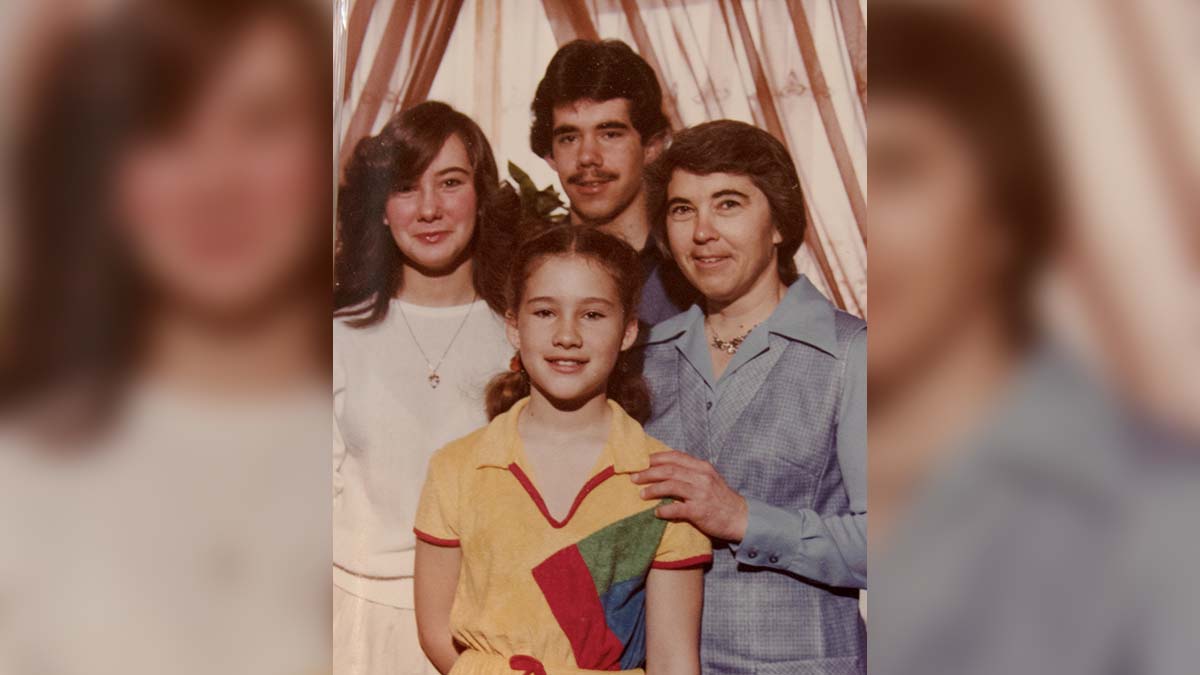
If a fire had broken out in a northern region like Pewanuk, on the Hudson’s Bay coast, it would have been Miriam’s job to evacuate the population. One such fire did break out, but it was controlled, and evacuation was not needed. In 1981, at 50, Miriam also took up curling. Meanwhile, son Ted was taking photography at Humber College. Later he attended Sir Sandford Fleming, majoring in fish and wildlife.
Howie and Miriam decided to take the next step. Howie proposed to Miriam, and they were wed on September 30, 1989, by Miriam’s dad. “Ted gave me away and took the photos. Glenda and Lori stood with me. Most of our family members were there.” For the honeymoon, the couple hunted moose in Oba, but no moose could be found. On a side note, Miriam was a good friend of Mike Mantha’s parents, Bucko and Rita Mantha. “We travelled to Disneyworld in Florida together. I recall that Mike’s youngest brother Daniel and my Lori both fell asleep while watching the parade there.”
Howie and Miriam continued to work together. When a fish hatchery in Thunder Bay lost all their hatchlings, and they were looking for a new source of fish, Miriam helped. She caught sample fish from Hawley Lake and from the Severn River in the Hudson’s Bay area, so their livers and scales could be assessed for health. When good health was established, enough fish to aid the restocking were caught. During that summer, Ted, still a teen, got work building a weir, a low dam doubling as a fish ladder.

When workers were needed to count caribou, Miriam volunteered Howie. Tongue in cheek, the ministry told him, “Count all the legs and divide by four.” Actually, Howie and his pilot flew above the herds, counted samples of each group, and extrapolated the estimated totals. It was a nice job to end his work life. In 1992 both Miriam and Howie retired. With the help of Don Van Every, they built the Confederation log home Miriam lives in now. “Don closed it in for us and we finished the interior, using pine from our bush lot.” Miriam did all the plumbing and much of the carpentry work. Howie did the wiring.
Miriam continued to curl in Gore Bay. She also joined the Lions Club and has been a member for 27 years. About 1993, Ted decided to go into the medical field and was moving to Texas to attend nursing college. Mariam and Howie helped him move. “I drove the U-Haul; Howie took our truck and Ted drove his car. After Ted graduated from the college, he worked as a nurse in Texas for a while. Later, after being disenchanted with the medical field, he came back to Manitoulin to become the happy farmer he is today.”
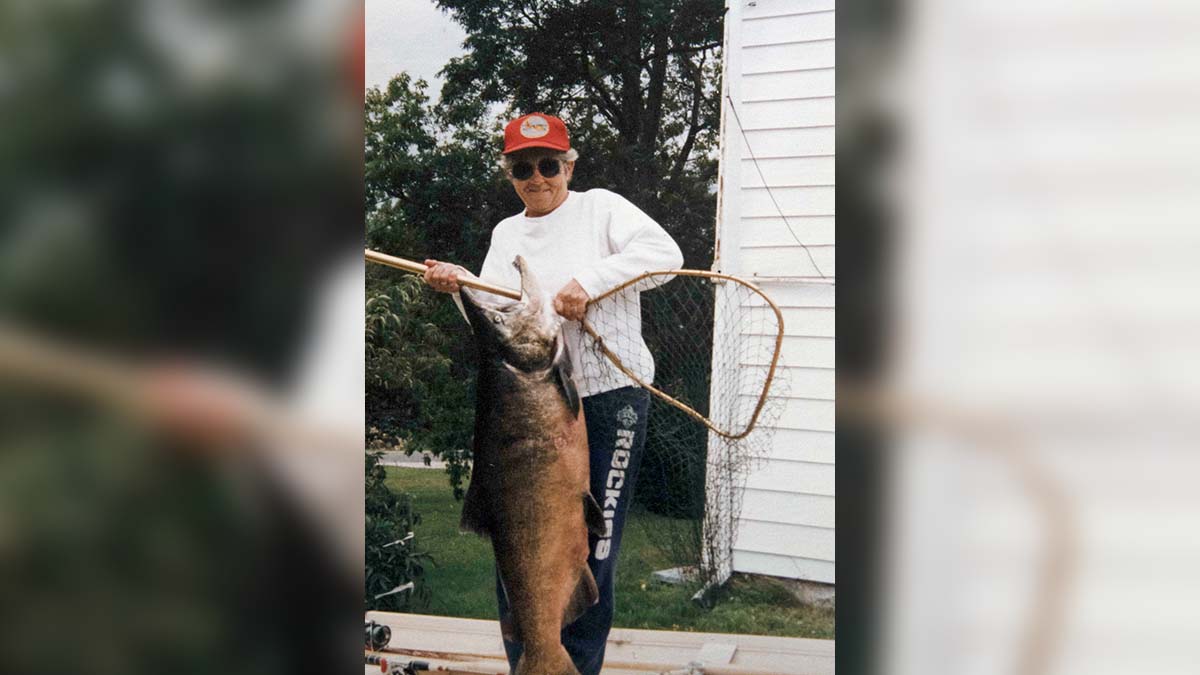
Howie and Miriam enjoyed travelling. “We explored Newfoundland and Labrador twice and the east coast of Canada two times as well. We visited my brother John in Wyoming and British Columbia where Howie has two daughters.”
“In 2005, Ted asked to look for the brother he had yet to meet. He found a connection to Barth Gillan in Montreal within 30 minutes. Barth had been searching for his mother too, and he wanted to meet the family. Grandmother was not well at the time, so Ted told him to come soon to meet her and the family. Barth arrived at Manitoulin in November of 2005, making part of the journey with Lori, who lived closest to him. He met his mother, his siblings, Glenda and Ted, and their grandmother. It was an emotional time for all, especially Miriam. Barth came back for Christmas and New Years that same year, with his wife and two daughters, Daisy, five, and Chelsea, eight. Now Miriam gets a call from Barth every Sunday night.
“First jobs? Babysitting at 12 and harvesting potatoes, carrots and turnips at 14. My strengths? Getting into trouble early on, and working hard later, growing plants, building homes, and taking on new career opportunities.”
“What am I most proud of? My kids, my 17 grandchildren and 15 great-grandchildren. What did I enjoy most as a parent? Doing tasks with the kids, cutting wood with Ted, or hunting with my daughter.”
What would you like others to think about you? “That I am friendly and generous.”
Any advice to pass on? “Work hard at any job you do.”
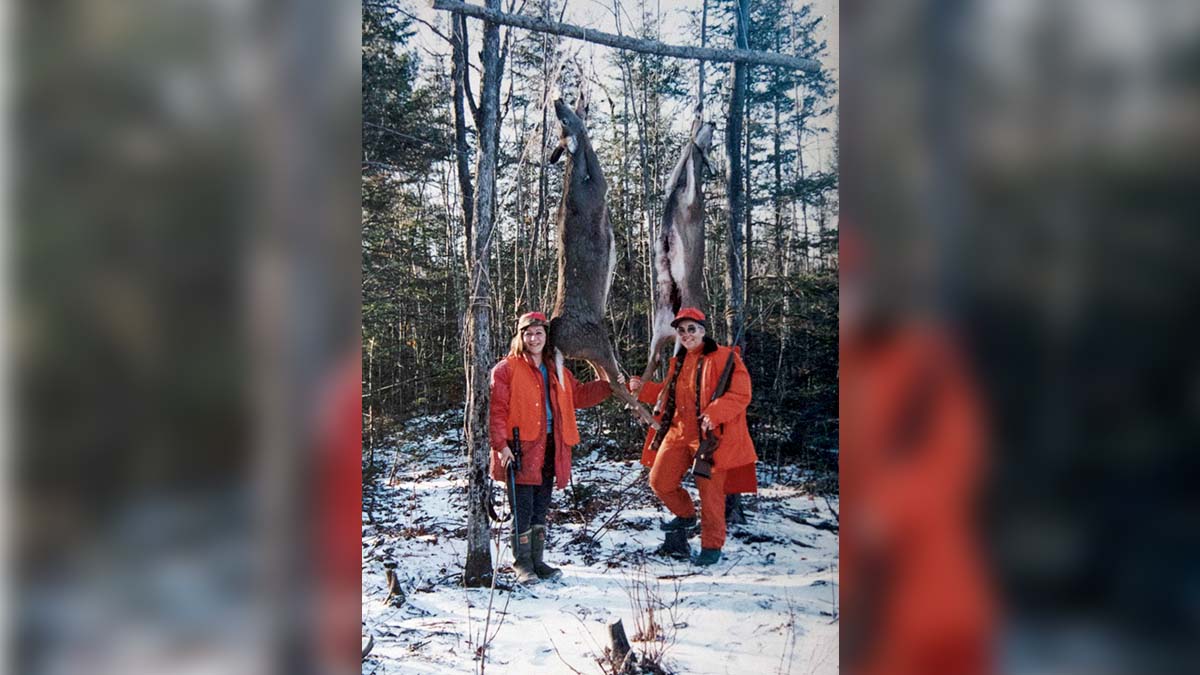
Associations? “The Lions Club. We raised funds for the X-ray equipment for the medical centre. Favourite sport? Baseball, broomball and curling. Awards or trophies? ‘Cock of the North,’ a trophy, was given to a player who made the biggest blunder in a game in Chapleau. This eight-inch wooden replica was awarded at my retirement party to gales of laughter.”
If you could go back in time, is there something you would change? “I would have a talk with the person who may have relocated 11 raccoons to this area. My garden has been a disaster this year. Ground hogs, deer and especially raccoons have taken much of my harvest. Donations of these critters may be best done to more remote areas.”
Is there something you would still like to do? “Take the train to British Columbia. Favourite holidays? Valentine’s Day when Barth was born and Christmas Day when Lori was born.”
Any hobbies you enjoyed? “Building stuff. I built a hay wagon for square bales for Ted. Recipe for happiness? Love others and be honest.”
“Manitoulin is the ‘banana belt.’ I love the people and I have been connected to the Island one way or another all my life. All the folk I know here have been wonderful. I enjoy the peace and solitude of the Island. Living in a city does not inspire a peaceful life. The gentleness of Manitoulin is a nice contrast to a bustling metropolis. Sadly, Howie died a few years ago but I will spend the rest of my life here, working with Ted on the weekends, greeting customers and just enjoying my life.”


